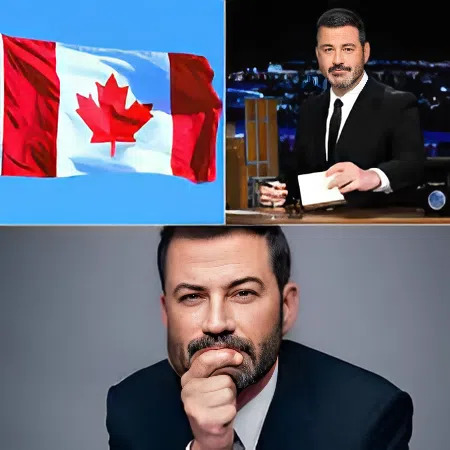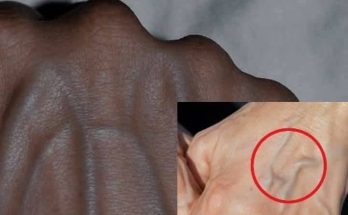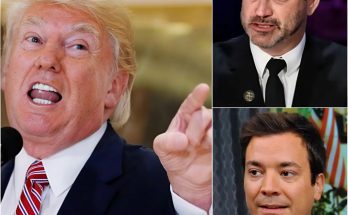In the chaotic and often-unbelievable world of social media, a single rumor can spread with the speed of wildfire, capturing the public’s imagination and, in an instant, becoming indistinguishable from the truth. That’s exactly what happened when a sensational story, claiming that late-night icon Jimmy Kimmel was ending his show and leaving the country, sent a jolt of panic through the media landscape. The rumor, a product of a satirical website, was a masterclass in misinformation, a carefully crafted story that played on the real anxieties and political tensions that are now defining the nation. But while the story itself was a complete and utter fabrication, it has since become a powerful and sobering symbol of a much larger, and very real, crisis that is now facing the world of late-night television.
The rumor, which was quickly and definitively debunked by multiple fact-checking organizations and news outlets, claimed that Kimmel had announced in an emotional monologue that he was leaving his show and moving to Canada for good. The story was so specific, so personal, and so dramatic that it was immediately shared and discussed by millions, leaving his fans in a state of shock and disbelief. But a quick search revealed the truth: there was no monologue, there was no announcement, and there was no plan to leave the country. The story was a hoax, a piece of viral misinformation that was designed to get clicks and to capitalize on the very real fears that are now gripping the late-night world.
But the hoax, in its own bizarre way, became a powerful and profound commentary on the state of the industry. The fact that so many people were willing to believe the rumor is a testament to the fact that the idea of a late-night host leaving their show is no longer a fantastical notion, but a very real possibility. The cancellation of Stephen Colbert’s show was a dramatic and shocking event, and it has left the remaining late-night hosts in a state of high anxiety. While Kimmel has publicly mocked Donald Trump’s threats to cancel his show, the reality is that the threat is not just a joke. It is a very real political and economic pressure that is now defining the future of the genre.
The truth is that the late-night world is in a state of flux. Viewership is down, advertising revenue is dwindling, and audiences are increasingly turning to other platforms for their entertainment. Kimmel himself has been candid about this new reality, stating in a past interview that he believes “there is no future for late-night.” His words, which were not a joke, were a sobering reminder that a genre that has been a cultural staple for decades may be drawing to a close. The rumor about him leaving the country, in this context, was not just a piece of fake news; it was a reflection of a very real and very serious problem. It was a projection of the fears and anxieties that are now gripping the industry, and it was a sign that the public is ready to believe that anything, no matter how wild, can happen in the world of late-night television.
In the end, the Jimmy Kimmel hoax is not a story about a celebrity leaving the country; it is a story about a television genre that is facing a reckoning. It is a story about the power of a single rumor to go viral and to be mistaken for the truth. And it is a story about the new reality of the media landscape, where the line between fact and fiction is more blurred than ever before. While Kimmel has not left his show, the rumor has served as a powerful reminder that in this new era, nothing is certain, and the only thing that seems to be permanent is the chaos itself.



